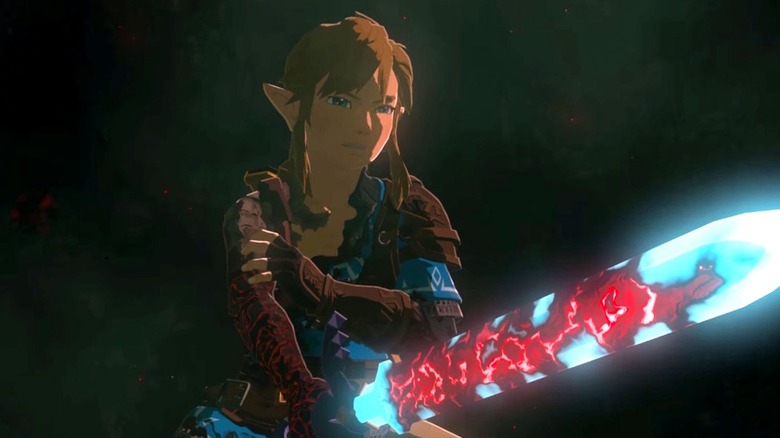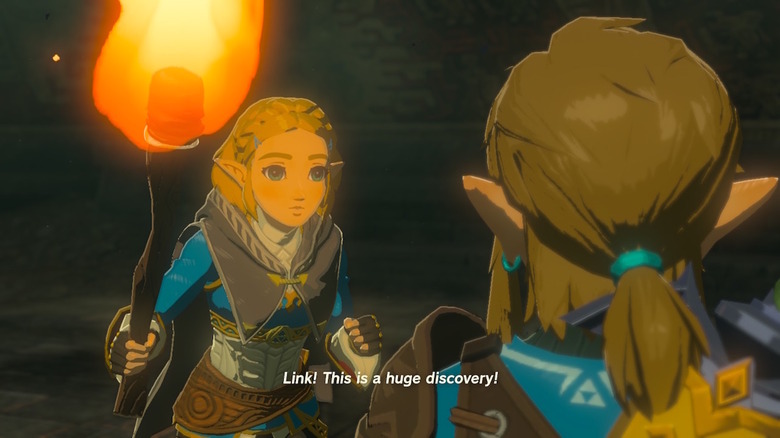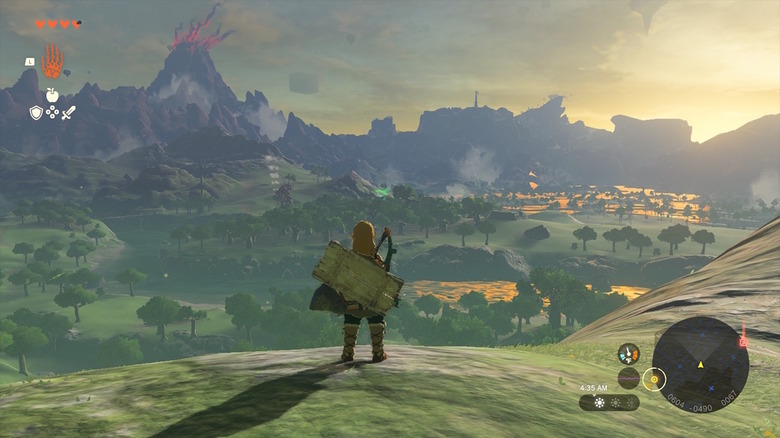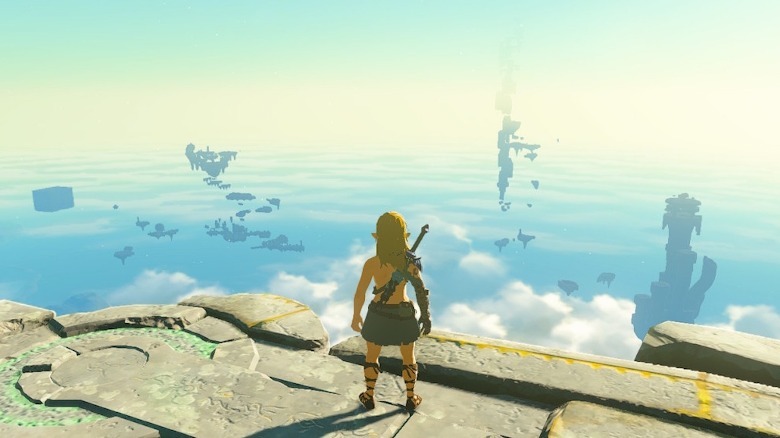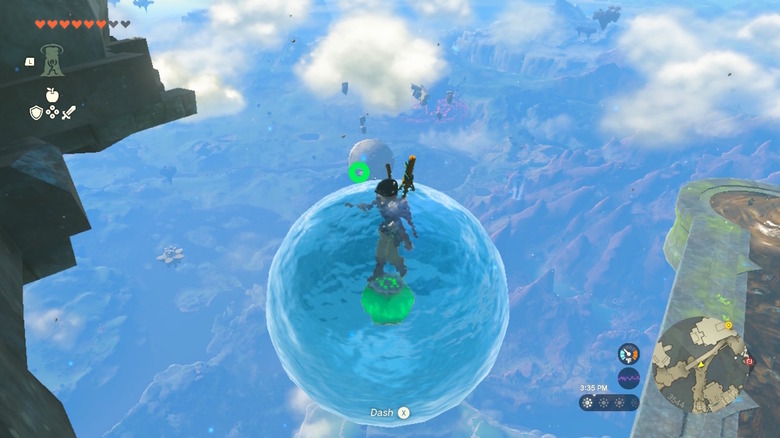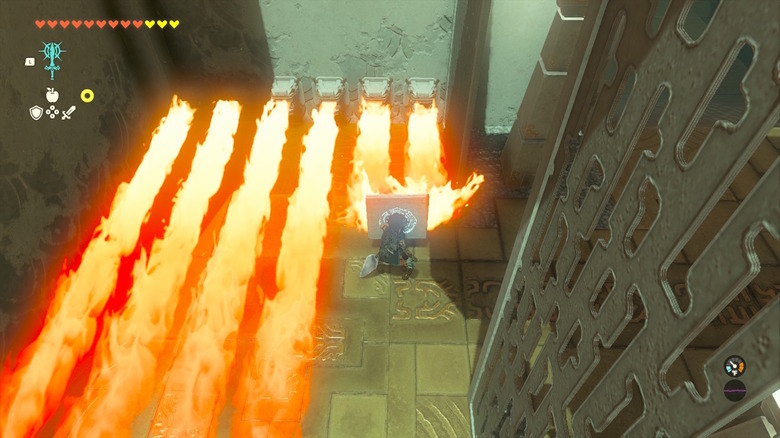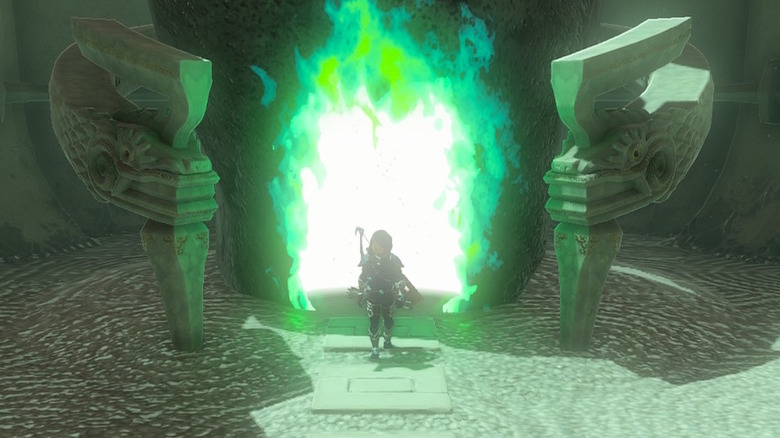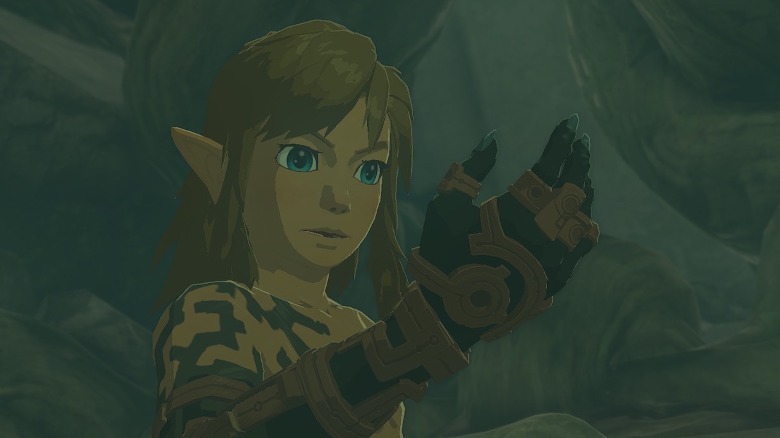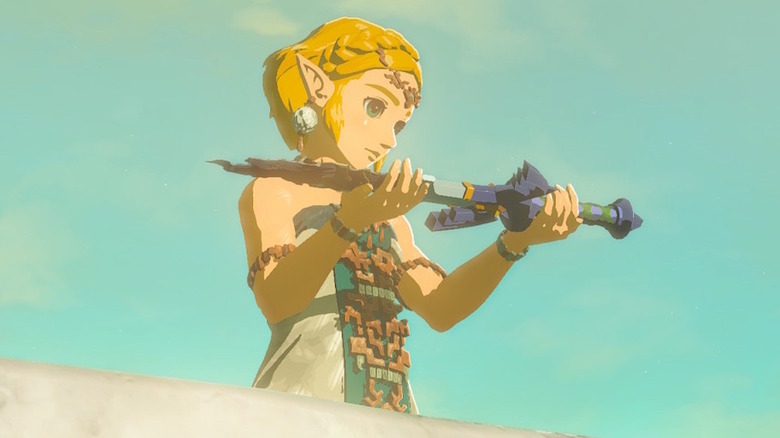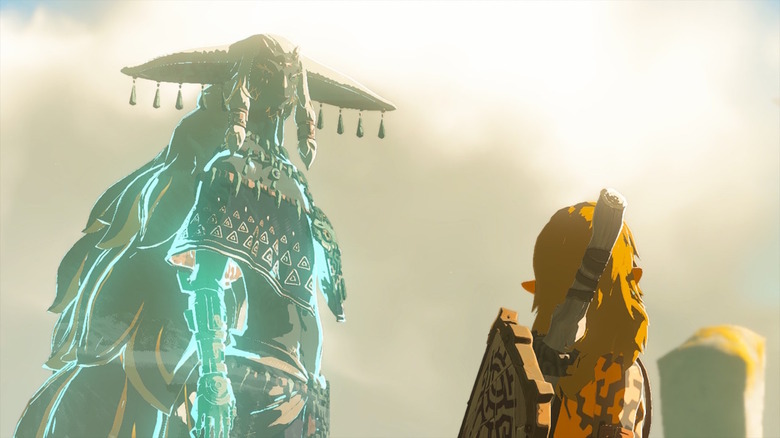The Legend Of Zelda: Tears Of The Kingdom Review - Welcome To Zelden Ring
- An almost alarmingly robust open world to get lost in
- Physics, combinations, and other behaviors work intuitively
- Shrine puzzles are more interesting and satisfying
- More variety to the dungeons and bosses
- Some irritating game mechanics from old games stuck around
- Untethered openness can lead to absurd difficulty spikes
- Frustrating combinations of gameworld elements
We may receive a commission on purchases made from links.
The gaming press (and public) seemed to fall in love with "The Legend of Zelda: Breath of the Wild" when it was released back in 2017. Soon after release, the game became one of the best reasons to own a Nintendo Switch. Like many people, I also bought and played it when it came out, but unlike most, I came away with an odd feeling. As though the game was trying its best to make it difficult for me to enjoy myself. This isn't to say I hated (or even disliked) "Breath of the Wild," but I considered it more "okay to good" rather than a stellar AAA masterpiece.
Starting in on "Tears of the Kingdom," for which Nintendo provided a download code for the purpose of this review, I was a little worried that I'd have the same mostly enjoyable experience tinged by frustration and disappointment. Thankfully that isn't the case here, with "Tears of the Kingdom" both acting as a pretty significant upgrade over the previous title and giving me a feeling I haven't had since first making my way through, "Elden Ring," one of 2022's biggest (literally and figuratively) open-world games. And yet, some of the same obnoxiousness of the previous massive Zelda game remains.
A true sequel
Most (not all, but most) "Zelda" games act as standalone stories that may or may not share a world and timeline, but almost never follow the same characters — despite many of them sharing names and likenesses. "Tears of the Kingdom" is one of those outliers as it acts as a (more-or-less) direct sequel to "Breath of the Wild."
Hyrule is free of the threat of Calamity Gannon, and both Link and Zelda are spending their free time helping the kingdom rebuild. Though now there's a mysterious miasma drifting up from the depths below Castle Hyrule, so, of course, the pair have to investigate. Also, of course, this seemingly innocent act causes a ripple effect that puts the world in danger once more. It also quite literally tears the kingdom apart, with massive chasms opening up all over the map and a number of mysterious floating islands appearing hundreds of feet above the landscape. Oh, and Zelda's been "fridged" again. Because of course. But at least this time she still has some agency.
It won't be difficult to piece together some of the plot's intentions, even early on, but something about the way "Tears of the Kingdom" focuses more on the here and now (with a smattering of the distant past) rather than rigidly tying itself to centuries-old events makes the story a lot easier to invest in.
Distressingly vast
"Tears of the Kingdom" is a massive game. I'm sure it's not the largest open world in a video game or anything like that, but it's huge. To the point that it's almost daunting once one exits the tutorial area and finds one's self in the middle of Hyrule with nothing but a single navigation point. And a big part of that is because Hyrule isn't just Hyrule anymore.
Or rather, it's not solely limited to terra-firma. As mentioned before, there are also a large number of floating islands that can be accessed and explored. No one floating land mass is particularly gigantic (when compared to ground-level Hyrule), but they often appear in clusters and can hide a number of materials and other goodies far less common at lower altitudes. Simply figuring out how to navigate through them can be a pretty satisfying puzzle, but finally reaching a hidden chest or shrine makes it feel even more worth the effort.
It might sound hyperbolic, but I'm being serious when I say that traversing Hyrule in "Tears of the Kingdom" and constantly discovering new locations or spotting interesting shapes in the distance made me think of "Elden Ring" on more than one occasion. One particular area — which I won't spoil here — gave me serious Caelid vibes. The only problem is the "go anywhere" freedom can result in some ridiculous spikes in difficulty.
Dungeon renovations
You may end up finding out the hard way that there's an intended order to the game's dungeons — or at least a preferred place to start. Your first major delve may put you up against regular enemies that could wipe you out in two hits. On the plus side, you'll leave with more powerful weapons, which will make tackling the next one much easier.
These dungeons are much preferable to the Divine Beasts from "Breath of the Wild." Since they aren't all giant stone animals with an elemental theme they're way more varied in their looks, atmosphere, and mechanics. A region's principal character will also come along with you as you explore their associated dungeon, lending a unique ability for each one. Aside from adding one more gameplay tool on top of the variety already present, it's also nice just to have a friend come along because "Zelda" games are so often somewhat lonely when you aren't in a town.
The bosses are also a breath of fresh air since they get to be different creatures that each tie into the region's dungeon and plight, rather than simply being a different mini version of the primary antagonist. These fights feel much more like classic "Zelda," too, acting as a sort of puzzle in addition to a test of combat skill.
Better fundamentals
Much like before, a large part of "Tears of the Kingdom" involves a sort of open-ended approach to most situations — made possible via the continued use of a fairly intuitive sandbox of physics, material properties, and other gameplay mechanics. All of Link's reality-bending powers from "Breath of the Wild" may be gone, but his new collection of magic tools fills in nicely. Or really, better.
Some of these new powers are similar to what we had access to last time, but even those include an added wrinkle to make using them far more interesting and helpful. Many objects can be picked up and moved, but now they can be glued together to create bridges, climbing surfaces, rudimentary vehicles, shields, and a whole lot more. But they can also be glued to Link's weapons to increase their power or add other interesting effects. It's a lot of fun and can be really satisfying, to just play around with combinations until you manage to create something like an exploding javelin or flame-spewing shield.
Ascend is the biggest game-changer, though. This power allows Link to essentially dive straight up and "swim" through solid matter directly above him, then pop out on the other side. It's a much faster way to reach higher ground most of the time, but it's essential for some puzzles, too. Just so long as you remember to use it.
Shrine on
Where Shrines could get tedious in the previous Zelda game, the new game provides puzzles that make Shrines downright enjoyable. Not just because they're often built around teaching you new and interesting ways to utilize Link's new powers, but because said powers usually make it possible to find more than one way around the problem. This is a game that's made for creative minds.
The Shrines more than anything encourage and reward sideways thinking, and ideally give the gamer ideas for weapon combinations and surreal puzzle solutions. But the wildest thing is most of the time they work. Attach an icy monster horn to a basic sword and voilà! Ice sword! Glue a rocket to the bottom of a platform, get on top, then set it off and you have a quick way to get some air. Stick a bomb to your arrow and watch the inevitable explosion from a safe distance.
Some blemishes remain
Where "Tears of the Kingdom" starts to falter — though not fall flat, as the previous game did — is in both its random tendencies and a handful of obnoxious elements that were carried over. Weapon durability in "Breath of the Wild" was one of these less-than-perfect elements, and while it's significantly less irritating now that you can turn a stick and a rock into an effective hammer, it's still not perfect. Particularly when it can be such a pain to expand inventory slots in order to carry more at a time (to replace them as they shatter).
Also the weather. Having to swap clothing and armaments to something non-metal in a lightning storm is kind of cool, but Link's constant slipping when trying to climb in the rain is infuriating. Especially when the rain is basically random, so you could be halfway up a mountain and suddenly find yourself stuck because you can't climb any higher until the skies clear. Potions that help with climbing on wet surfaces exist, but most of them don't prevent slipping.
Cooking continues to be a bit of a sore point as well, with the process just as much of a slog as it was before. Cooking in and of itself is extremely useful and worthwhile, but in order to do it you still have to individually select ingredients from the menu and manually drop them into the pot.
The Legend of Zelda: Tears of the Kingdom verdict
Despite the occasional (but consistent) frustrations encountered in "Tears of the Kingdom," nothing is a dealbreaker. Yes, it can be obnoxiously random, and on more than one occasion, I've been forced to stand around doing nothing because of rain. But the story is more engaging and the mechanics are, by and large, a lot more fun.
I want to keep playing so I can find everything. Not because the game tells me to, or because I need certain items for story progression, but because I'm having fun. Even though the map is an expanded facsimile of the previous game, it feels more rewarding to comb through every nook and cranny. And in most cases, it's worth the effort because you'll find some useful crafting (or cooking) materials, weapons, armor, or even subquests just over the horizon or around the next corner.
Even more so, you have more freedom in the ways you exercise that freedom thanks to Link's new abilities. And this is after I've only really scratched the surface on creating vehicles, which could honestly be a game in itself (insert "Banjo-Kazooie: Nuts & Bolts" joke here). "Tears of the Kingdom" is a better "Breath of the Wild," to the point where I'd recommend skipping the latter in favor of the former if you haven't played either. It's a fantastic improvement to an already enjoyable game, even if it carries over some residual warts.
You can purchase "Zelda: Tears of the Kingdom" now from Nintendo on Amazon for around $70 — or direct through your Nintendo Switch's game store.
